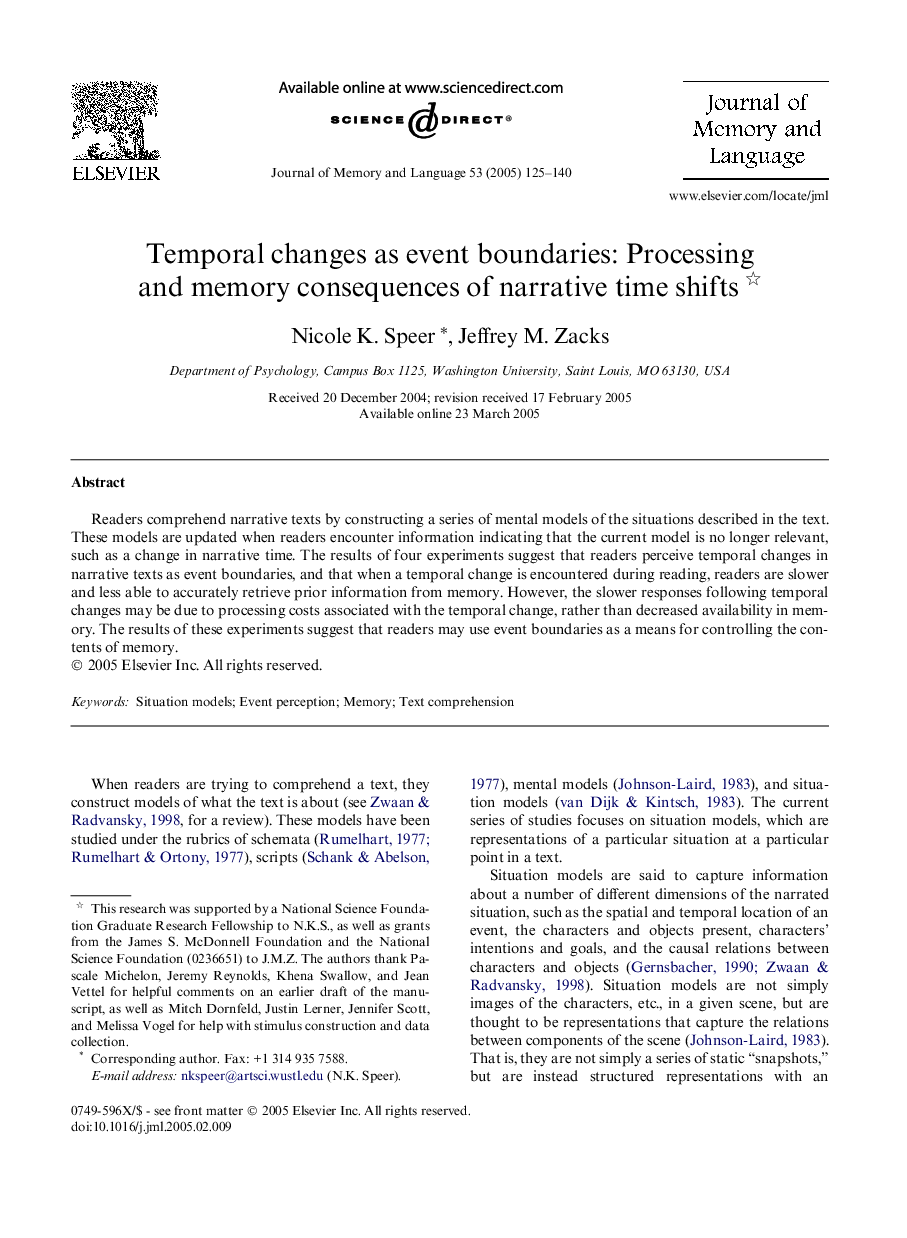| Article ID | Journal | Published Year | Pages | File Type |
|---|---|---|---|---|
| 10459832 | Journal of Memory and Language | 2005 | 16 Pages |
Abstract
Readers comprehend narrative texts by constructing a series of mental models of the situations described in the text. These models are updated when readers encounter information indicating that the current model is no longer relevant, such as a change in narrative time. The results of four experiments suggest that readers perceive temporal changes in narrative texts as event boundaries, and that when a temporal change is encountered during reading, readers are slower and less able to accurately retrieve prior information from memory. However, the slower responses following temporal changes may be due to processing costs associated with the temporal change, rather than decreased availability in memory. The results of these experiments suggest that readers may use event boundaries as a means for controlling the contents of memory.
Related Topics
Life Sciences
Neuroscience
Cognitive Neuroscience
Authors
Nicole K. Speer, Jeffrey M. Zacks,
